Birch Tree Community – October: Shedding Light on Sensitive Periods
This month’s blog is all about observing and identifying sensitive periods. What is a sensitive period and how can we support it in our children? Maria Montessori described sensitive periods to be intense periods of interest and focus where the child is absorbed in some characteristic or aspect of their environment, almost to the exclusion […]
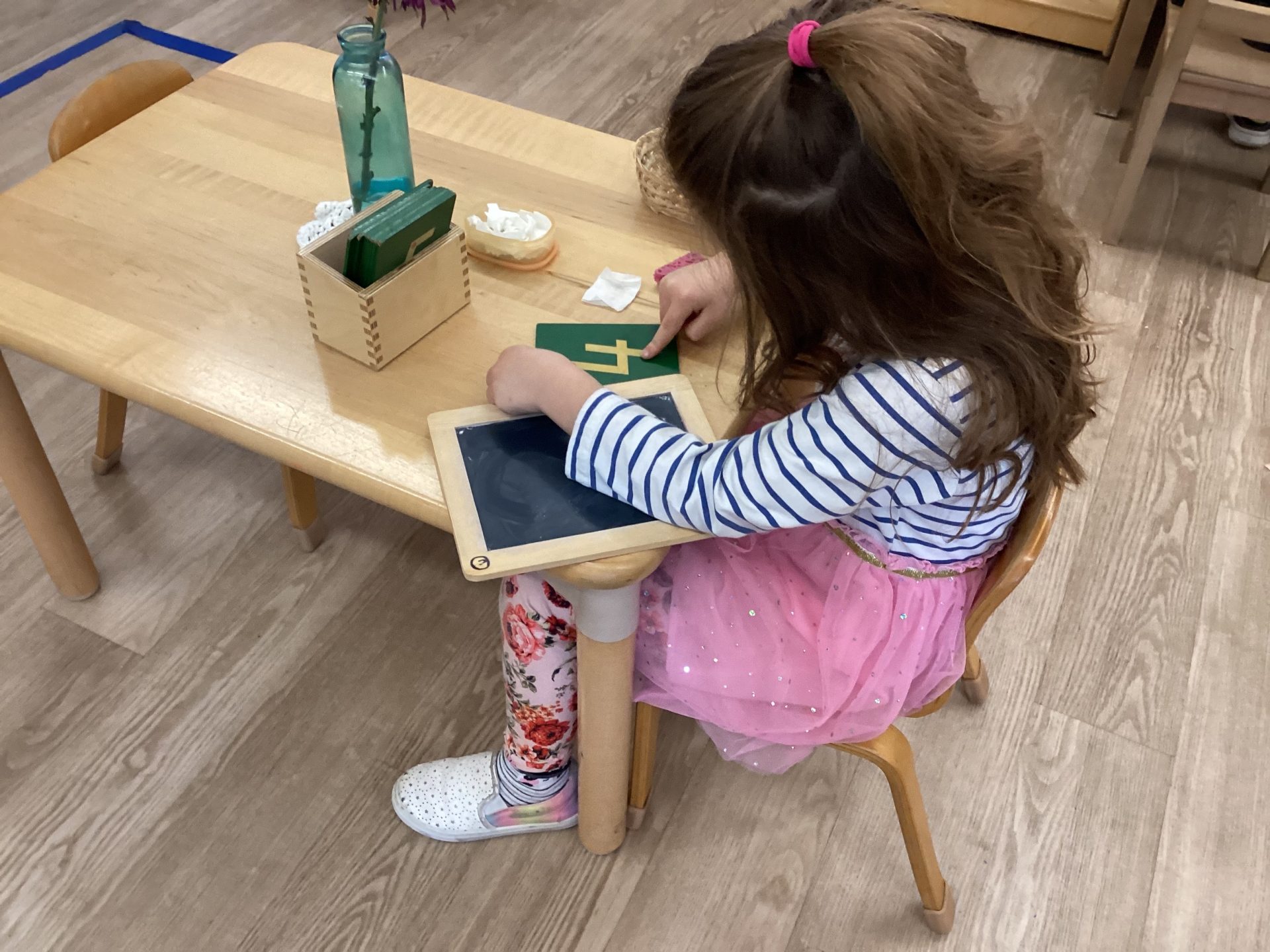
This month’s blog is all about observing and identifying sensitive periods. What is a sensitive period and how can we support it in our children?
Maria Montessori described sensitive periods to be intense periods of interest and focus where the child is absorbed in some characteristic or aspect of their environment, almost to the exclusion of all others. If we look on the surface of a child repeating the same work over and over with intense focus for a period of time, we may think at first that they are not engaging with a variety of things available to them or interacting with their peers. However, if we look closer, we see that a developmental need is being met. Between the ages of 3-6, these needs can often be related to a sense of order, using and working with the hands, language, small and detailed objects, and socializing.
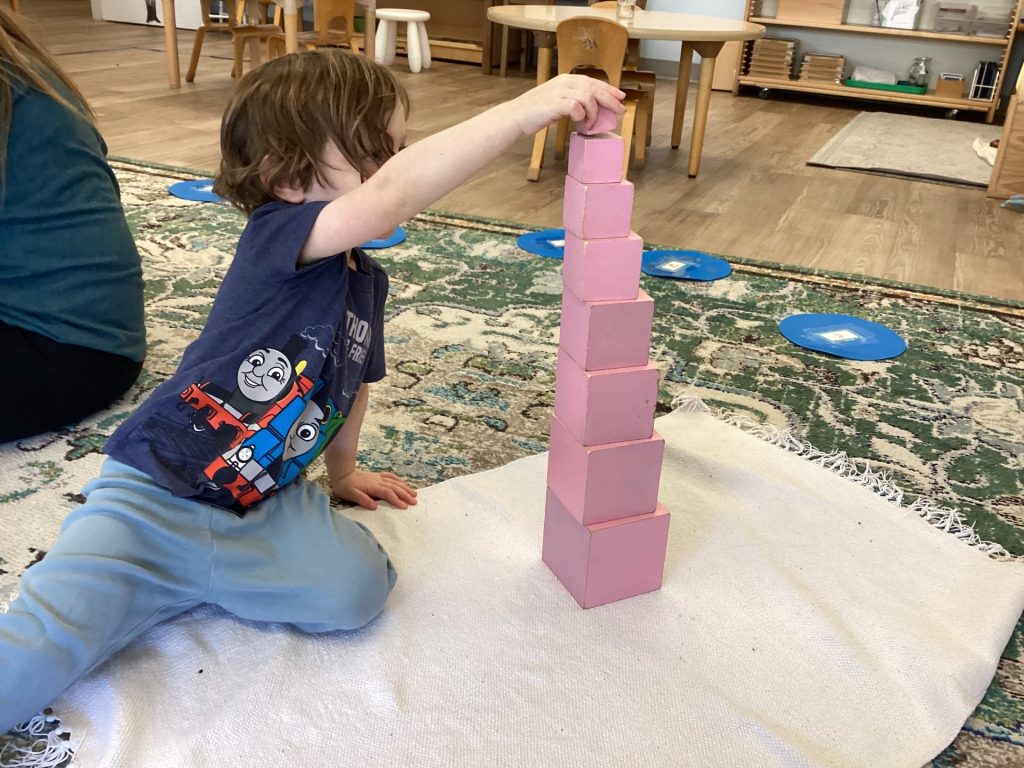
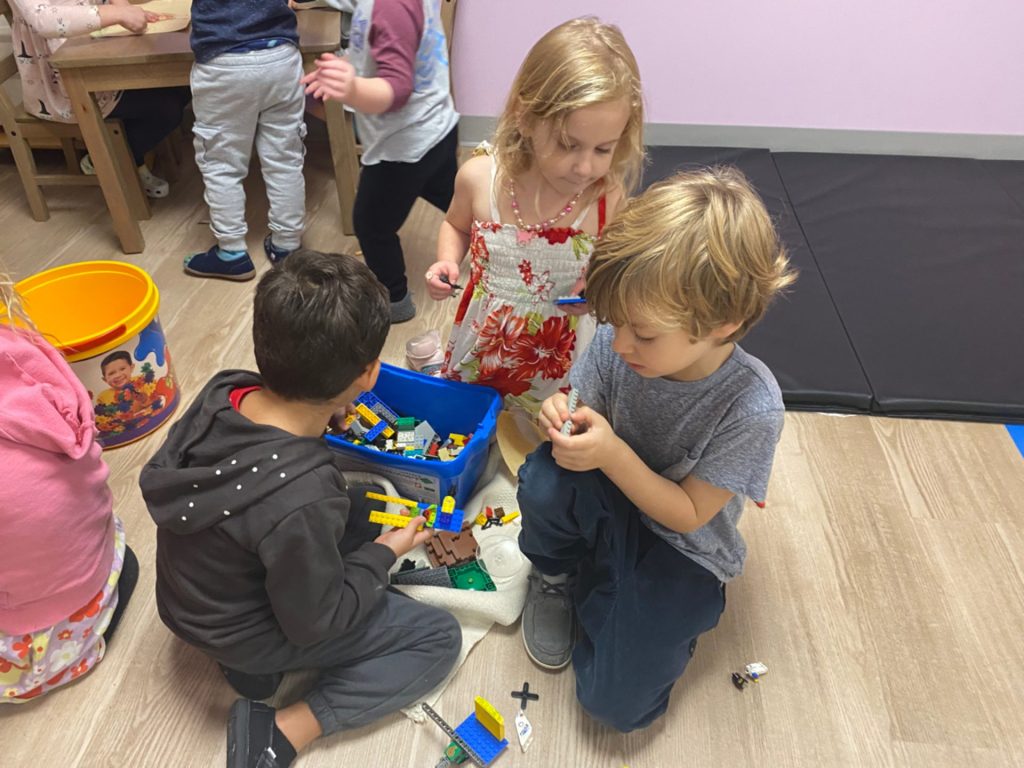
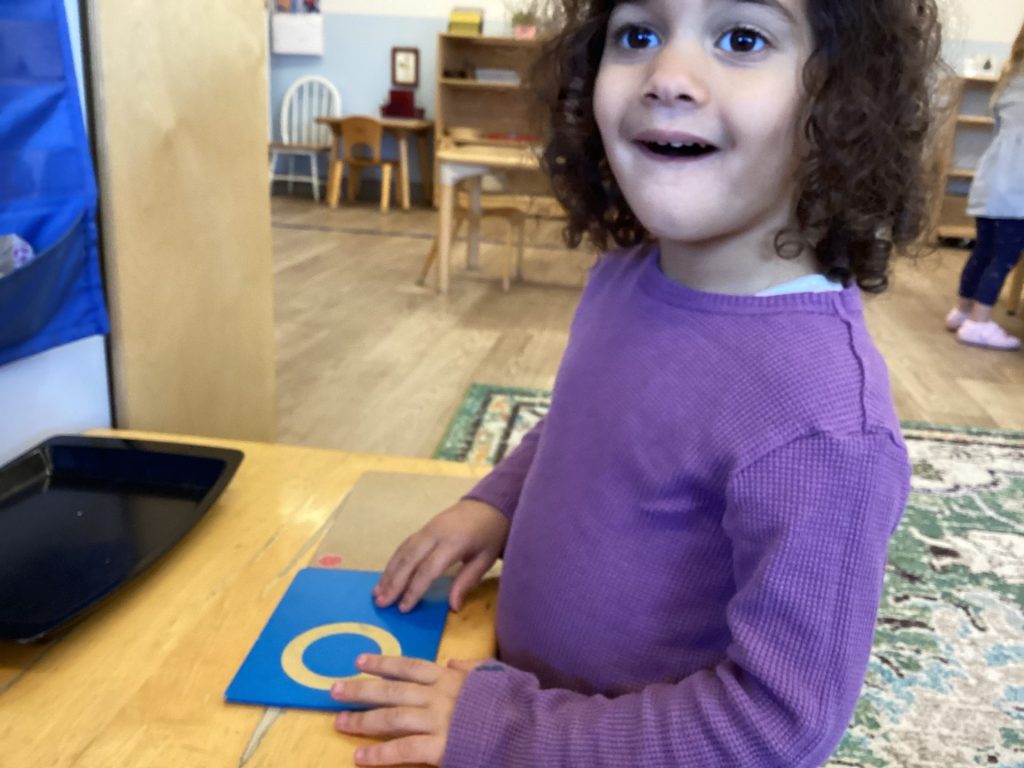
Within the space of a Montessori classroom, we allow for these sensitive periods to unfold. Children are gifted ample blocks of time to satisfy a need within their body and mind. So often, children are rushed off to the next thing or forced to join in on a group activity that they may have no interest in. This time in a child’s life should be one of choice and freedom within limits as they develop their personality and brain.
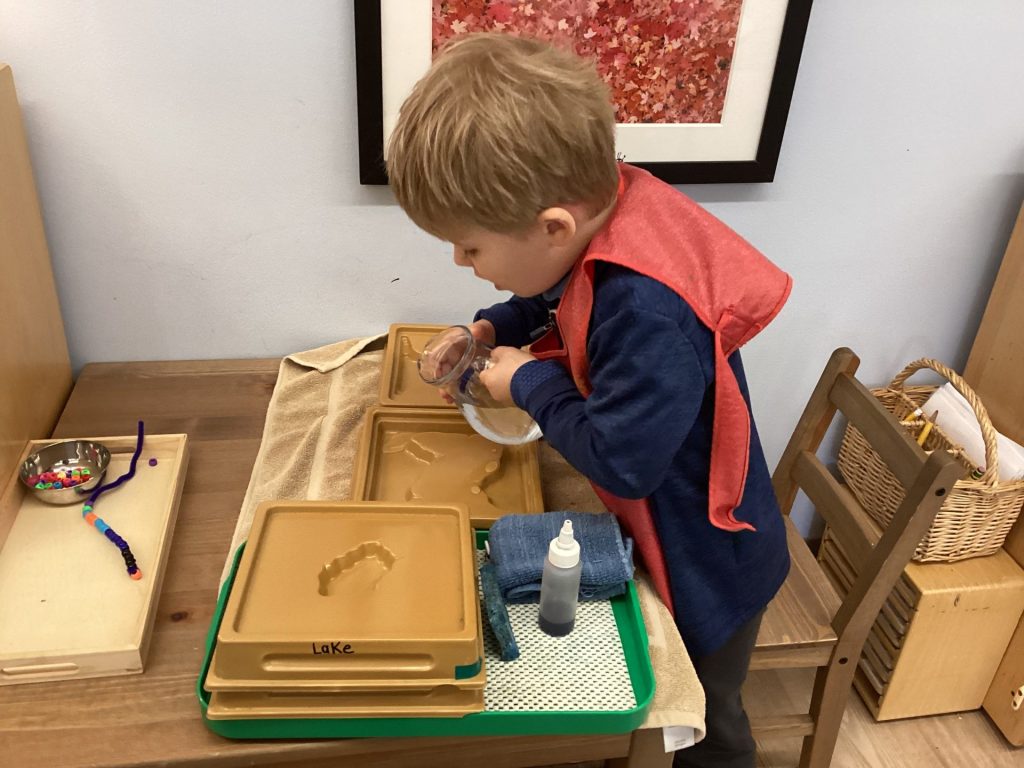
Observable examples within the classroom or at home might include the desire to listen to or be read the same story many times over again. Many adults may think, “Aren’t you tired if this yet?”, when we know the answer is no, until the child’s need is met. The intense interest in small, minute details may be seen in a child who notices seemingly trivial objects or details in their home, outdoors, and in the classroom. I once had a child at an outdoor summer camp become anxiously excited to show me the “horse” in the tree every day that we passed by. It was something only she could see but it did not stop her from the need to share it every time. A child who thrives on the particulars of a routine is showing you that they are in a sensitive period for order. When something is out of place, this could disrupt or upset that child in the moment. A child who chooses the climbing dome as their activity at recess for a month may be in a sensitive period for this specific kind of movement. Within the classroom, a child may spend days focused on a work such as tracing a map or building a structure out of some sensorial materials. This time for them is protected and supported whenever possible so that they can satisfy that need and often master the skill needed for that task.
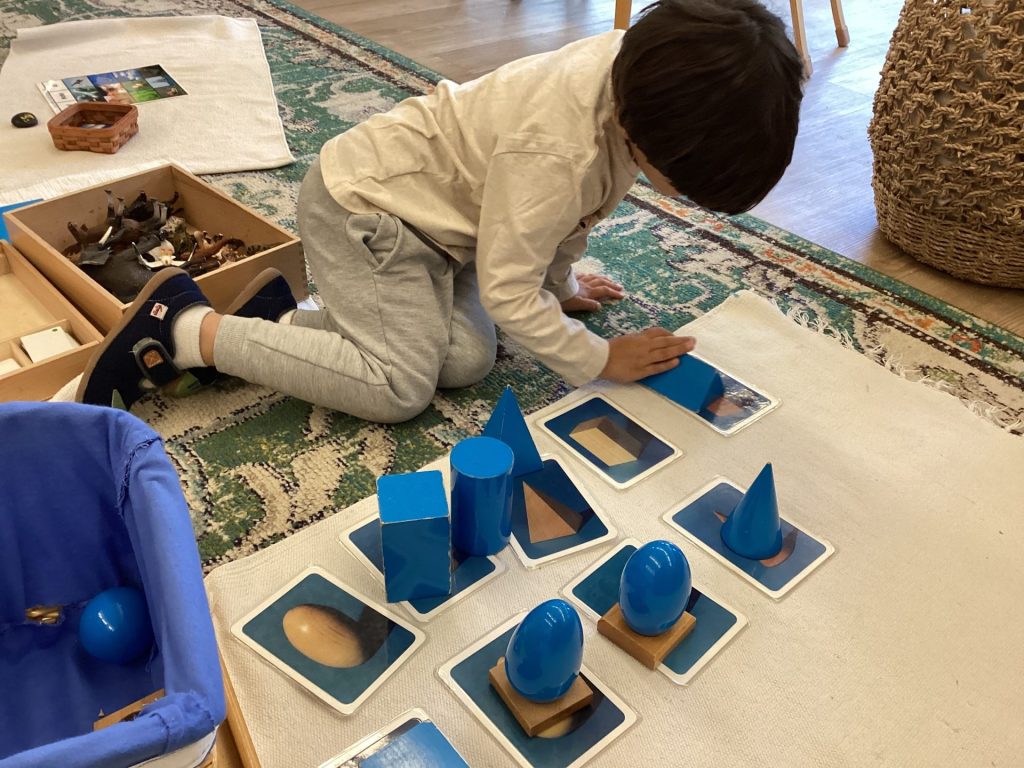

Sensitive Periods can also be seen socially. As Paula Polk Lillard notes in her book, Montessori: A Modern Approach, children at this stage become deeply interested in community and social life. They want to become “involved in understanding the civil rights of others and establishing a community with them”. This can often come out in squabbles or conflict among groups or pairs of children. Again, if we look at the surface, we may see children misbehaving or become frustrated because they cannot get along or disregard our suggestions. But, if we go under the surface, we may see two children who care care a lot for each other and desire to work out their differences on their own and acquire the skills needed to resolve conflicts. Have you ever witnessed two children who just had a fight, recovered from it, and seemed happier with each other and their friendship than they were before they fought? Similarly, we often see other children come to the rescue to help a child in need or be the helper or the teacher to others because they are developmentally ready for this responsibility.
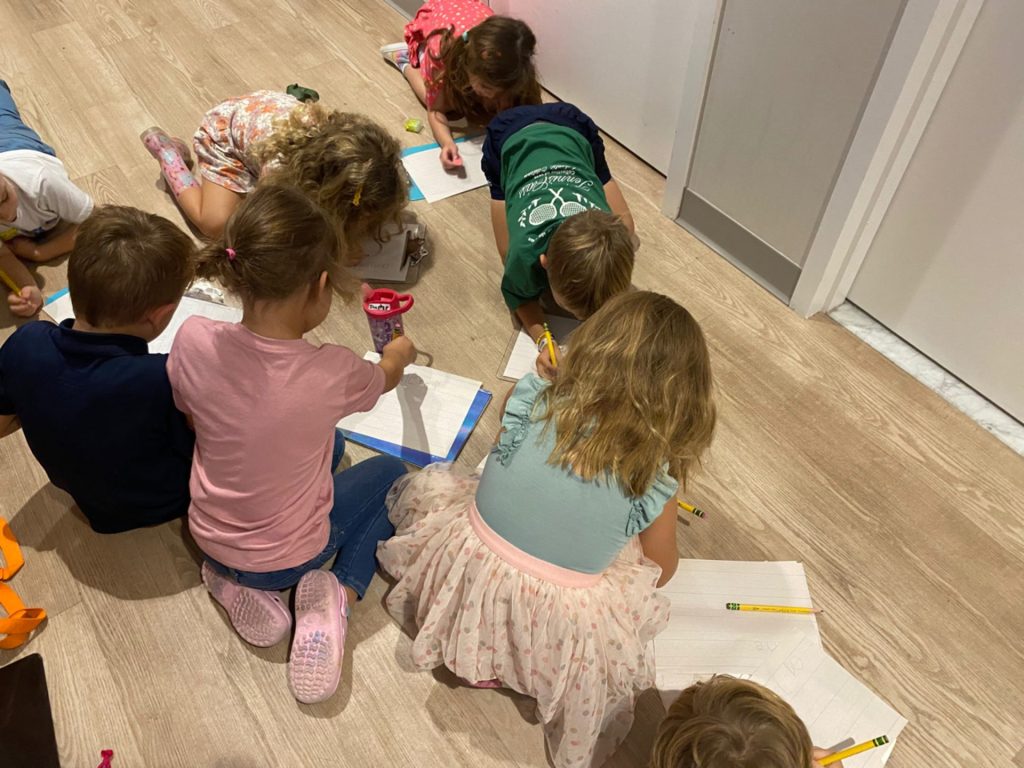
I invite you to take a closer look and observe your child’s behaviors, tendencies, and preferences. Are they showing you that they are working on an inner need or drive that may require the patience to read that book again one more time, the support to be nearby as they work through something with a friend, and the time to hang out at the playground with them a little longer so they can master a new skill? This is what we do as guides in the classroom – observe, protect and respect their choice and concentration, and be available to take them onward on their journey.






